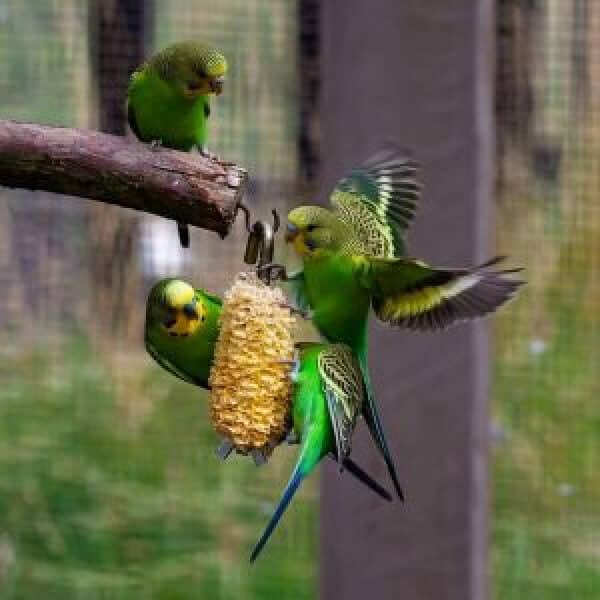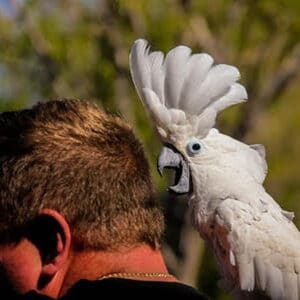
Feeding Pet Birds Based on Species is Crucial for Several Reasons
Last Updated on by Mitch Rezman
- **Nutritional Requirements:** Different bird species have unique dietary needs. For example, parrots may require a diet rich in fruits, nuts, and seeds, while canaries might need more greens and grains. Feeding a bird food that is popular but not suited to its species can lead to malnutrition.
- **Health and Longevity:** A diet tailored to a bird’s species can prevent health issues and promote a longer, healthier life. Improper diet can lead to obesity, vitamin deficiencies, or other health problems.
- **Behavioral Well-being:** Birds fed a diet appropriate for their species are more likely to exhibit natural behaviors and have better mental health. An incorrect diet can lead to stress, boredom, and destructive behaviors.
- **Digestive System Differences:** Birds from different species have varying digestive systems. Some are adapted to digesting seeds, while others may require a diet with more fruits or insects. Feeding the wrong type of food can cause digestive issues.
- **Avoiding Toxic Foods:** Some foods that are popular and safe for one species can be toxic to another. For instance, avocado is harmful to many bird species.
- **Mimicking Natural Diet:** In the wild, each species has evolved to eat specific types of food. A diet that closely mimics a bird’s natural diet is more likely to fulfill its nutritional needs.
- **Reproductive Health:** Proper nutrition is essential for breeding birds. A species-specific diet ensures that breeding birds get the right balance of nutrients needed for egg production and rearing of chicks.
- **Preventing Selective Eating:** Birds, like humans, may prefer certain foods over others. A species-appropriate diet encourages a balanced intake rather than allowing the bird to pick only its favorite (often less nutritious) items.
In summary, feeding pet birds based on their specific species is essential for their overall health, well-being, and longevity.
It ensures they receive the right balance of nutrients and prevents numerous health issues associated with improper feeding.
Written and Approved by the Windy City Parrot Content Team
addendum 12/14/2023
“ Mitch, you are right on the mark, birds are individuals. A certain amount of tendencies can be expected from each group, but like us, not all Chinese people use chopsticks, and all Italians don’t speak with their hands!
I advise new owners that their first bird should not be one with anger and training issues. In 50 years this has worked well. I only have 4 bird brains now: 26 yo B&G, 24 yo Congo, 76 yo blue-front Amazon, and 20-year-old Alexandrine. I love what you do for all birds, Aloha, Chris ”
Thank you Chris for your expert insights.
I’m working on a post now on “how birds think” like they don’t know the concept of “a room” so if I walk into a room where a bird is do we “magically appear” every time?
Barney or cockatiel after 2 1/2 years will now fly over to my office and lightly tap-tap-tap on my head for attention – where did he learn that?
Much to ponder – Happy holidays – Best – MitchR
Author Profile
Latest entries
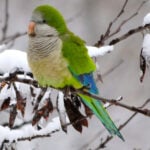 The Traveling BirdJune 26, 2025Can You Name 5 Parrot Species That Are Living Wild in the USA?
The Traveling BirdJune 26, 2025Can You Name 5 Parrot Species That Are Living Wild in the USA?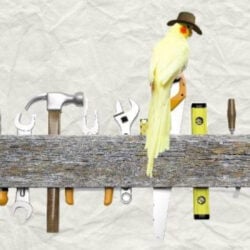 Bird BehaviorJune 26, 2025How is it Parrots Are Problem Solvers Social Animals and Even Use Tools?
Bird BehaviorJune 26, 2025How is it Parrots Are Problem Solvers Social Animals and Even Use Tools?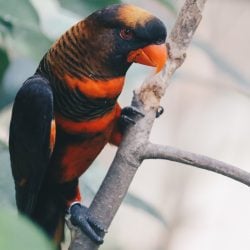 Bird & Parrot AnatomyJune 25, 2025How a Tiny Chemical Modification Makes Parrots Nature’s Living Paintings
Bird & Parrot AnatomyJune 25, 2025How a Tiny Chemical Modification Makes Parrots Nature’s Living Paintings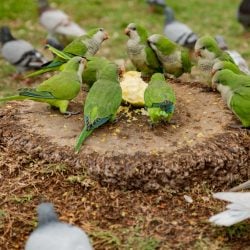 PigeonsJune 20, 2025How Do Parrots Thrive in Cities Outside Their Native Habitats?
PigeonsJune 20, 2025How Do Parrots Thrive in Cities Outside Their Native Habitats?
